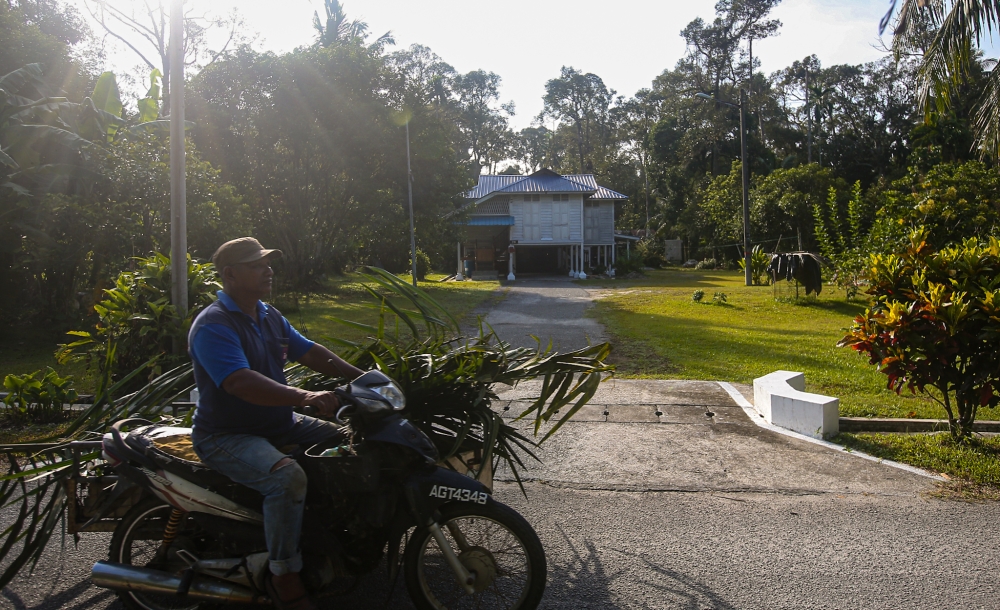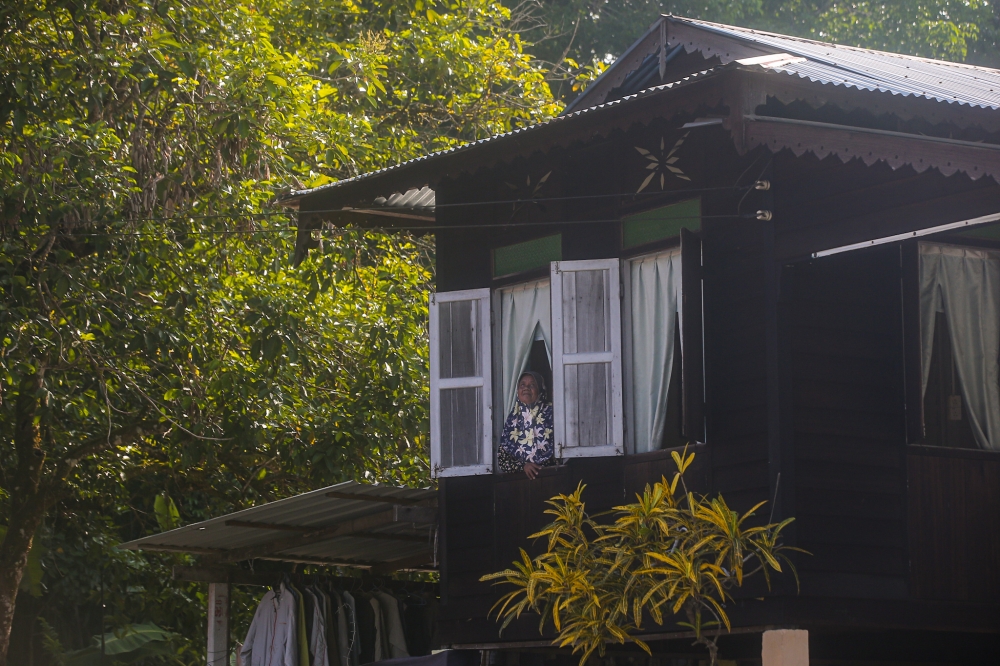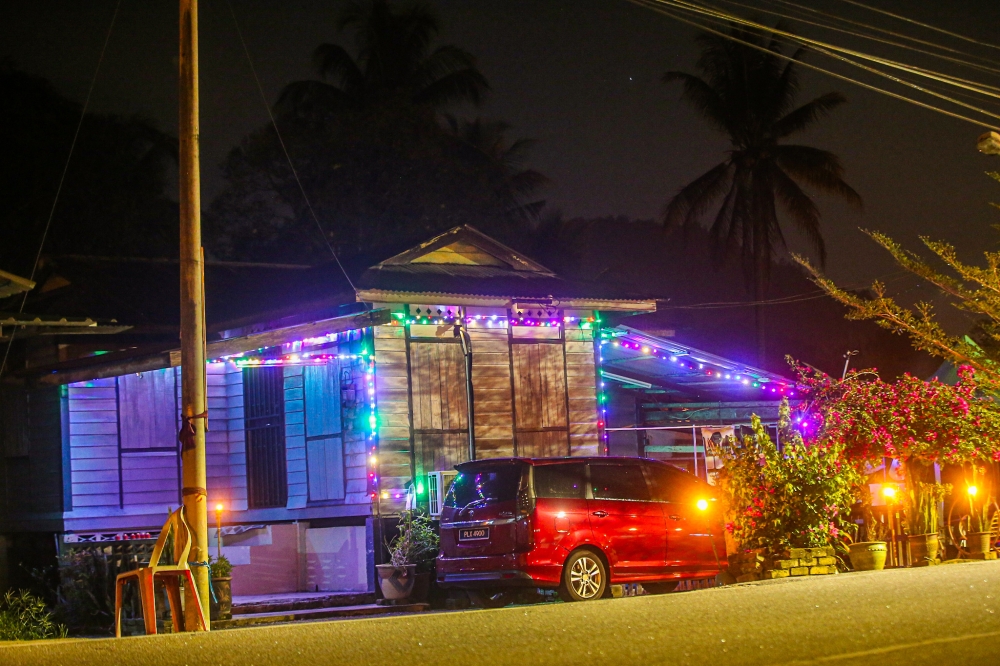KUALA LUMPUR, April 11 — Jannah Risma, 27, still remembered the feeling when her family car would pull up onto the driveway of a “kampung” house in Temerloh every year ahead of Aidilfitri. Relatives could not contain their excitement to welcome those rare homecomings.
When she was young, one of her unforgettable memories was cosying up with her cousins in the old house’s living room, while their parents would choose to sleep elsewhere to let the children enjoy their precious time together during those rare reunions.
“I can still vividly recall those almost three-hour car journeys to reach my grandparent’s house. We would be singing Raya songs with excitement all along the way. We usually set off in the afternoon and arrived there by the evening just so we could break our fast together two days before Raya.
“At night, the male cousins would spend hours chatting outside the house, while the girls would gather in front of the television to watch Raya telemovies together before bedtime,” Jannah related to Malay Mail.
However, the data analyst from Kuala Lumpur said in recent times recreating this treasured moment is just not possible anymore.
The cousins have all married, and the family has grown bigger. The once-spacious rooms gradually grew cramped.
Just like many from Malay families whom Malay Mail spoke to, Jannah said she has now resorted to renting a homestay near the grandparents’ home in the last three years to avoid overcrowding.
“I try to return to my hometown as often as possible, but especially during special occasions like Hari Raya. Renting a homestay has become a necessity for us as our family has grown, and it ensures everyone has a comfortable place to stay without overcrowding the house,” she said.

Similarly, Syahmi Awazhar, 31, said he noticed a rising trend among people choosing to rent homestays when they return to their hometowns for Hari Raya.
Drawing from his own experiences, Syahmi shared that his grandparents’ house in Kota Baru, Kelantan, is no longer adequate to accommodate the expanding family.
“I have a son and my wife is currently pregnant with our second child. I really think that it is important for my little family to have privacy and comfort.
“Living under the same roof with my three sisters-in-law can be really challenging because they need to cover their ‘aurat’. I sometimes feel bad when they feel obligated to wear headscarves indoors and that is also why I opt to rent a homestay instead,” added the dentist from Nilai, Negeri Sembilan.
“Aurat” in Malay refers to “intimate body parts” that Muslim men and women must cover with clothing; exposing these is considered sinful.
Wan Atiqah Wan Ahmad could relate to this, saying she always rents a homestay with her whole family near her grandparents’ house in Kuala Berang, Terengganu due to prioritising comfort and privacy.
Being single, she said the rooms would usually be offered to those with family and therefore, she needs to have her headscarf on the whole day to cover the “aurat”.
“The kampung house is hot, too crowded, limited rooms and priority is given to those with families, and I also have to put on my hijab all the time.
“It is very hard to enjoy my Raya day when that happens,” said the 27-year-old teacher.

Creature comforts have now become needs
With the climate crisis and rising temperature transforming the lifestyle of many urban Malaysians, those polled by Malay Mail conceded that the heat has these days become unbearable in traditional village houses.
This is felt even more by those who choose to cover their head with “hijab”, on top of wearing festive traditional attires with material which may be less airy than usual.
Even for men like Syahmi, he said he chooses to prioritise having air conditioning available due to his son’s sleeping difficulties and tendency to sweat.
“For me, air conditioning is the most important as my son tends to have trouble sleeping and sweats a lot. I’m not big on social media, so Wi-Fi is not a must for me.
“As long as my wife and son are comfortable, I’m happy,” he explained.
Jannah concurred, saying the absence of modern facilities only added to the challenges of staying in an old home.
“You know, when it comes to deciding whether to rent a homestay or crash at a traditional kampung house, it really boils down to the modern comforts.
“Facilities like air conditioning and Wi-Fi are big factors for many people, especially us city folks who are used to those luxuries,” she said.

Wan Atiqah said she especially does not favour sharing toilets with many people due to the lack of hygiene, especially as such occurrences tend to happen during Hari Raya celebrations.
“My family and I always rent out a homestay in Kuala Berang because it is hard to get work done in a cramped house. I remember we used to take turns to use the toilet and it only led to bigger problems, since then we would always rent a homestay nearby,” she said.
She also felt that renting a homestay does not lessen one’s sense of belonging and connection to their hometown.
“All of those have become needs now, not wants, especially Wi-Fi ... In the past, we could live without all of these but it is definitely different now,” she said.
Despite renting elsewhere, Syahmi said he would only return to the homestay to sleep and would spend the whole day with the family home to not feel left out.
“Renting a homestay definitely changes up the vibe during Hari Raya. Of course, it is not the same cosy feel as the kampung, but it beats the chaos of trying to fit everyone into one house.
“Sure, we do long for that nostalgic vibe, but the freedom to relax and soak in the celebrations without being cramped together makes me happy,” he said.






















